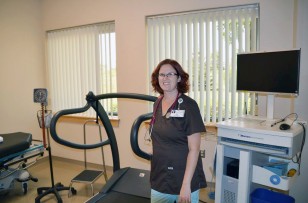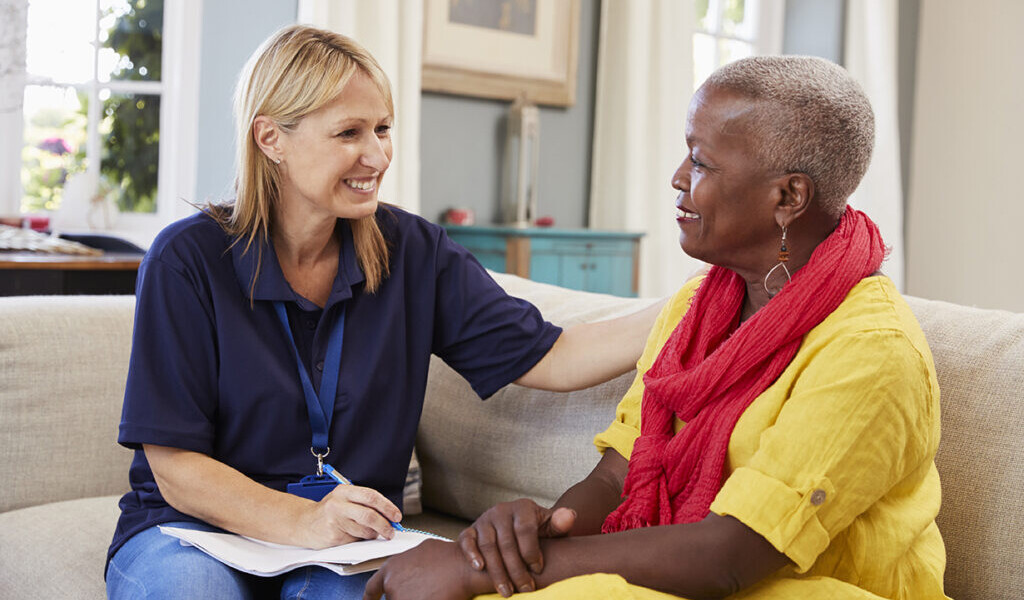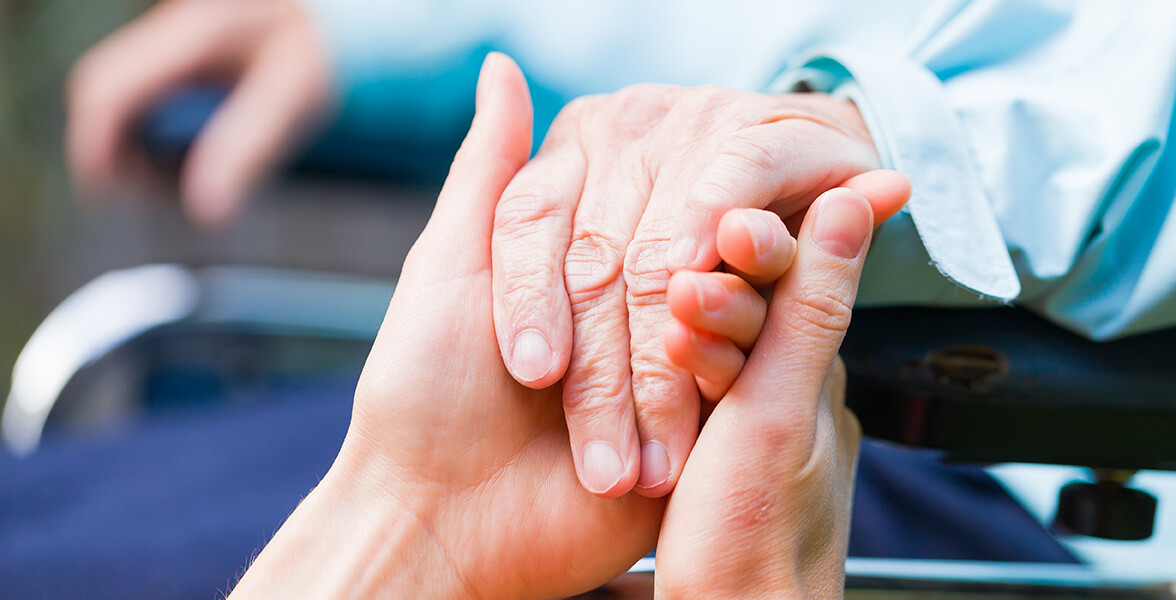Mary Holmes is reminding herself to breathe.
Holmes is a supervisor for the supportive day program at the Martha’s Vineyard Center for Living. She works with clients who live with disabilities and varying levels of memory impairment.
She recently completed UVM’s End-of-Life Doula Professional Certificate, an 8-week online program to prepare those interested in the emerging field of end-of-life care.

Holmes, who often works with clients living with dementia, enrolled in UVM’s program to better understand how to care for people who choose to die at home. While she’s not a practicing doula, she wanted more context around end-of-life issues.
“The program expanded my understanding of dementia as there was quite a bit of content that reminded me of my practice,” she says. “One of the teachings that struck me (was) about being centered, and the idea of holding sacred space for someone. That’s something I do in my work, but I didn’t really name that before. I didn’t understand it as a principle of working with someone with dementia.”
To not feel overwhelmed by the COVID-19 crisis, Holmes is trying to stay balanced in her everyday life. She’s limiting her media consumption and is focusing on things that are calming—gardening, breathing, listening to music, or talking to a friend over the phone.
“We’re a little wrapped up in the right thing to do. I always look at the CDC website or Mass.gov site to make sure I’m doing the right things from a health and safety perspective,” she says. “But I try to stay close to those old fashioned things, like gardening or calling someone.”
As the COVID-19 pandemic has spread, Holmes has reached out to her local hospice organization to let them know that she recently completed the UVM End-of-Life Doula program and to see how she could help.
“My job is as a supervisor at a day program, but it’s all from a distance right now. I’m not sure how the end-of-life process will be for families who are separated from their loved ones who are ill,” she says.
Caregiving During the COVID-19 Crisis
While technology such as Zoom, Facetime and Skype have been helpful during this time of social distancing, those tools have limitations for caregivers, she says. But she is using the technology with her clients and other caregivers are willing to try it out. Her day program, which was all about close proximity, is working to convey that closeness with clients through phone, tablets or computer screens. It’s all so new but seems to be working, she says.
Holmes is currently focused on connecting with her own clients by phone. She initially wanted to send cards, but she’s reconsidered that approach since COVID-19 can live on surfaces for multiple days.
Ultimately, once the pandemic is over, Holmes wonders how caregiving practices will change.
“I think we’re going to have to change how we work and I’m not sure how that’s going to be,” she says. “As caregivers, we have a sense of duty and mission, so I know we’ll figure it out. But we can’t rely on what we’ve known for such a long time. There might even be unseen benefits, like widening our circle of care through technology.”




